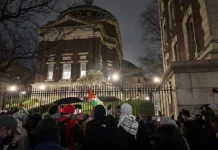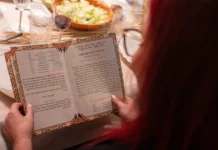Much has been made of the perceived disappearing act of the American Jewish community. Surveys indicate plummeting marriage and birth rates, rampant intermarriage and a lessening affinity with Israel.
These indicia have set off alarm bells as to the prospect of the slow-motion trainwreck of American Jewry. Studies, commissions and outreach have all been employed to stymie the decline.
However, it must be recognized that these concerns focus on only a portion of the American Jewish community, albeit its largest current cohort—the non-Orthodox, less religiously observant Jews.
Orthodox Jewry, by contrast, presents a diametrically different picture. While they traditionally made up less than 10% of American Jewry, like the meteoric rise of China as a world economic power in the last 20 years, Orthodox Jewry is seeing a quantitative and qualitative upsurge that is impressive in both absolute and relative measures.
In its 2020 survey of American Jewry, the Pew Research Institute found that the Orthodox birthrate was 3.3 per person, versus 1.4 for the non-Orthodox. The Orthodox rate is comparable to the overall Jewish birthrate in Israel, approximately 3.0, which represents an amalgam of all Jews regardless of level of religiosity.
Taking these numbers into a more macro context reveals the intensity of difference: 100,00 non-Orthodox women will have 140,000 children, while the same number of Orthodox women will bear 330,000 children. Repeat that pattern for another generation and there will be 196,000 non-Orthodox births compared with 1.089 million Orthodox babies.
For a community of some 5 million to 6 million Jews today, these are dramatic differentials.
Of course, these are projections and can vary significantly over time. There might be a revival among the non-Orthodox and a falling off among the Orthodox.
However, we can conjecture as to why the numbers are what they are and why they might continue. Why is there such a reproduction disparity among Jews of different levels of religiosity and observance?
I got a hint to that answer on a recent trip I made to the United States on behalf of my organization, Im Tirtzu. Together with one of my co-CEOs, I had the opportunity to speak at nine venues in Los Angeles and South Florida about current issues in Israel and the role of Im Tirtzu in addressing many of them.
The venue was either a modern Orthodox synagogue or a Chabad House. What was immediately obvious in each place was its great sense of community. Opportunities for study, engagement, volunteering, mentoring—not to mention prayer and celebration—were everywhere.
Israel was a cause célèbre, a great focus and concern. These are the Jews who show up in Israel, visiting their families and their children, and at the same time volunteer and otherwise seek to show their support for the Jewish state. They provide structure for themselves and their families, finding in their communities a bedrock for sustenance.
Could all this alienate young people? Perhaps, but I bet on the far greater likelihood that it engages, embraces and empowers the young to continue the effort.
Being among them, I felt grateful to them for being “wingmen” who support us from the Diaspora. Interestingly, I perceived that they felt the same way. I heard several times that we, in Israel, are doing the heavy lifting of protecting the Jewish people and that they wanted to do their part to assist us. In that regard, they reflect the sense of purpose that probably singlehandedly accounts for Israel regularly ranking as one of the very happiest nations in the world.
Perhaps that is the secret sauce for religious Jews: purpose. They believe in a Creator who is in a relationship with us. He has expectations for us, including our having expectations for ourselves.
What we do makes a difference. It matters. Key to that relationship is making sure that it continues, that it proliferates and bears increasing witness to the importance of being in a covenant with our Creator.
When I got back to Israel, I read that the Religious Action Center of Reform Judaism and its Central Conference of American Rabbis, like the group J Street, formally opposed the appointment of former Arkansas Gov. Mike Huckabee as America’s ambassador to Israel. Huckabee wants what is good for Israel and its people. He is the personification of the love and regard that Christian Zionists have for Israel: unambivalent, unambiguous and undiluted.
Why would the RAC take such a position? Clearly, they are prioritizing the political over the existential.
Like the overwhelming majority of Israelis, Huckabee has no interest or regard for the “two-state solution.” Unlike the RAC and J Street, he does not regard Israel as an occupier. On the contrary, he is interested in seeing Israel apply sovereignty in some shape or form over Judea and Samaria, the region that the RAC calls the West Bank, and in which it yearns to see a Palestinian state.
Sadly, the RAC, J Street and their fellow travelers are espousing the progressive litany, and, especially after Oct. 7, 2023, seem to prefer that political sanctimony to the safety and welfare of the Israeli people.
Of course, the RAC and the Central Conference of American Rabbis do not speak for all Reform Jews. Many Reform leaders, like Rabbi Ammiel Hirsch of the Stephen Wise Free Synagogue in New York, are not only passionate Zionists but understand the self-defeating messaging of their some of their institutions.
The challenge for these out-of-the-box Reform, and some Conservative Jews as well, is to understand that if the Jewish future in the United States continues to be dictated by such leadership, then non-Orthodox Jews will be increasingly consigned to the margins of the Jewish saga.
The simple reason for this is that the RAC is fairly explicit in aligning itself with other progressive voices. And if all the voices you want to be accepted by, and therefore emulate, are not that interested in marriage and fecundity, why would you be?
Along those lines, more and more nonreligious and progressive American Jews will move further away from Israel, and I suspect, further away from Judaism. They, in turn, will look sympathetically upon the Jewish Jew-haters protesting for Gaza in groups like IfNotNow and Jewish Voices for Peace.
It is a shame, but perhaps this has been the Jewish condition for centuries: either in or out.
Ultimately, the self-identifying American Jewish community will be stronger and prouder than ever. It will also look very different from the way it ever has.


























